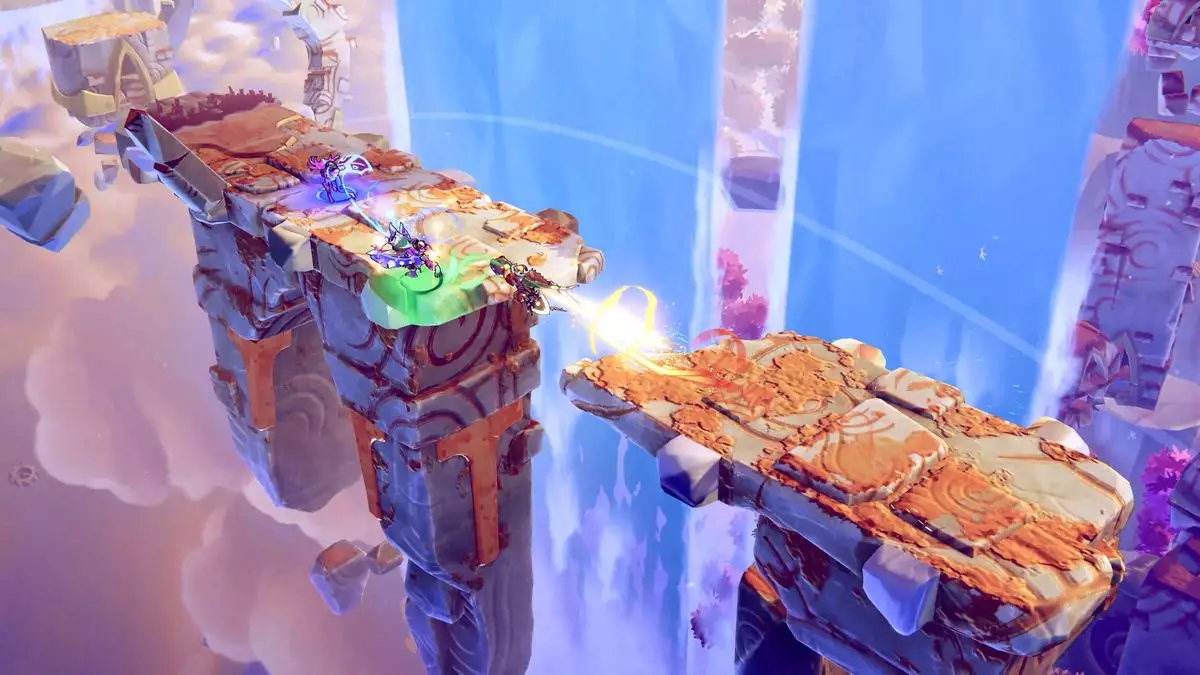In the fast-evolving landscape of video game development, finding ways to engage with the player community has become increasingly vital. Motion Twin—a studio renowned for their previous success, Dead Cells—has taken this principle to heart as they navigate the early access phase with their upcoming roguelike title, Windblown. The developers posit that incorporating player feedback can be a transformative aspect in shaping gameplay, with insights and experiences from the community acting as a guide to enhance the final product. As Thomas Vasseur from Motion Twin succinctly puts it, the essence of crafting compelling gaming experiences lies in player interaction: “I think it’s players that give us feedback… players are very, very helpful to make games like that.”
Windblown is set for its official early access debut on October 24, yet the foundations of the game have already been shaped significantly through a closed alpha test involving 200 to 300 players. This process of trial and engagement has brought about vivid adjustments to gameplay mechanics and user experience long before the broader gaming community gets involved. Yannick Berthier, another key developer, reflects on the profound impact this initial round of feedback has had, noting that players’ insights have helped refine weapon mechanics and add nuanced systems to the game.
While the notion of early access appears beneficial to Motion Twin, where continuous updates and player feedback flow harmoniously, the developers remain measured in their advocacy of this approach for other studios. Vasseur highlights the importance of aligning early access with the game’s core design philosophy. For instance, the roguelite genre thrives on repeated playthroughs and robust replay value, elements that seamlessly lend themselves to iterative development. In contrast, developers crafting a narrative-driven experience or a Metroidvania may face significant hurdles—adjustments in gameplay mechanics can necessitate extensive redesign of levels, presenting challenges that could complicate the development process.
The varying demands of different game genres necessitate a thoughtful analysis of early access viability. Vasseur and Berthier share insights that underscore these complexities. They acknowledge that modular game systems allow for flexible adjustments, letting developers implement new biomes or modify in-game mechanics without drastically impacting the overall game structure. In contrast, a rigid system can stymie responsiveness to player input, potentially leading to a less engaging final product.
This commentary raises an essential question regarding innovation—how adaptable should game development structures be? The answer often lies in balancing imaginative freedom with coherent design. For Motion Twin, the inherent malleability of the roguelike genre enables them to iterate efficiently, ensuring that player feedback meaningfully influences the game’s evolution.
As fans eagerly await Windblown’s release, it’s clear that this title serves as a living testament to the studio’s commitment to player-driven design. The interaction with early players demonstrates not just an appreciation for feedback but an understanding of the community’s role in shaping game functionalities that resonate with audiences. This responsive approach builds expectations for a polished experience, where players can find both enjoyment and innovation.
Ultimately, the journey Motion Twin embarks on with Windblown exemplifies broader trends in gaming, where early access has transformed from a relatively niche concept into a robust avenue for development, collaboration, and community engagement. As the gaming landscape continues to evolve, studios that prioritize player connection will likely cultivate not just successful titles, but lasting, engaged communities. Through examination of their process, it becomes evident that embracing player feedback as a core tenet of game development is not merely an option—it is essential for constructing immersive, beloved experiences in an industry defined by dynamic interaction.


Leave a Reply